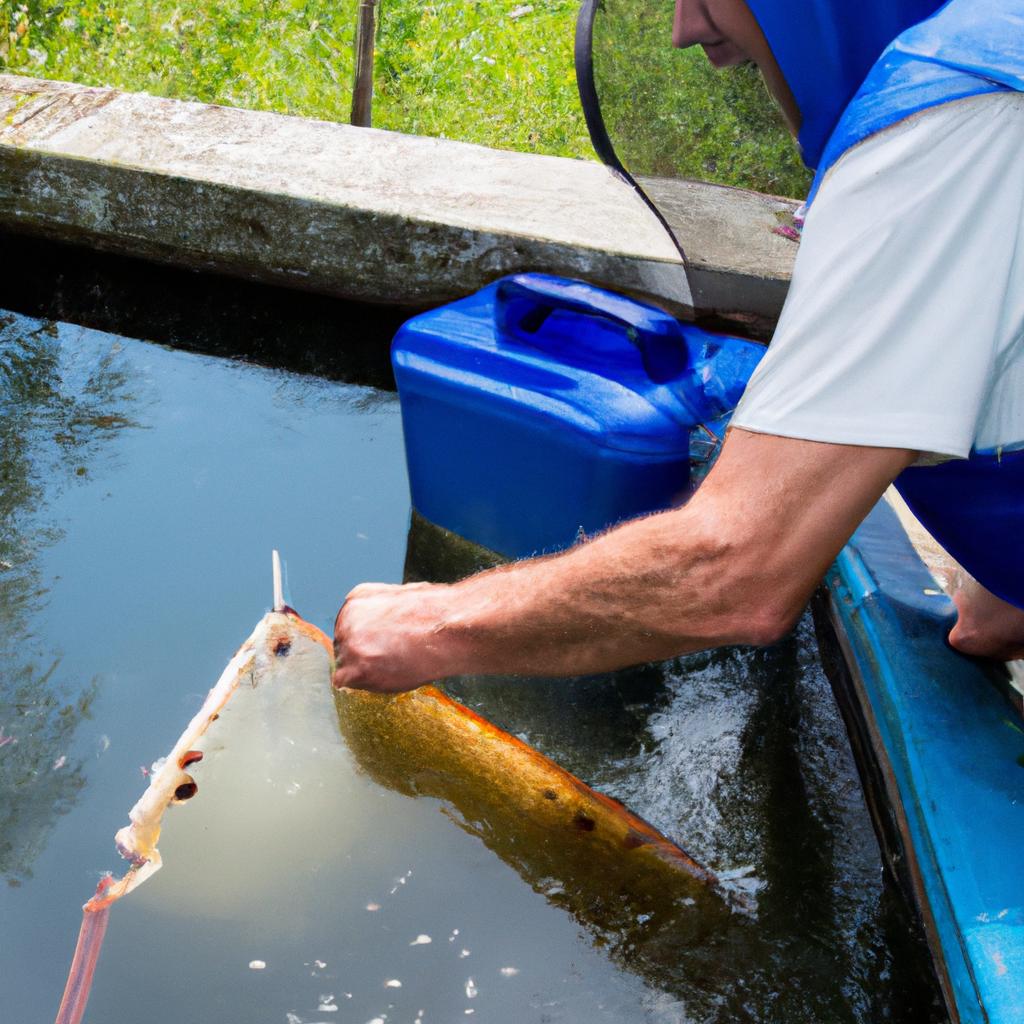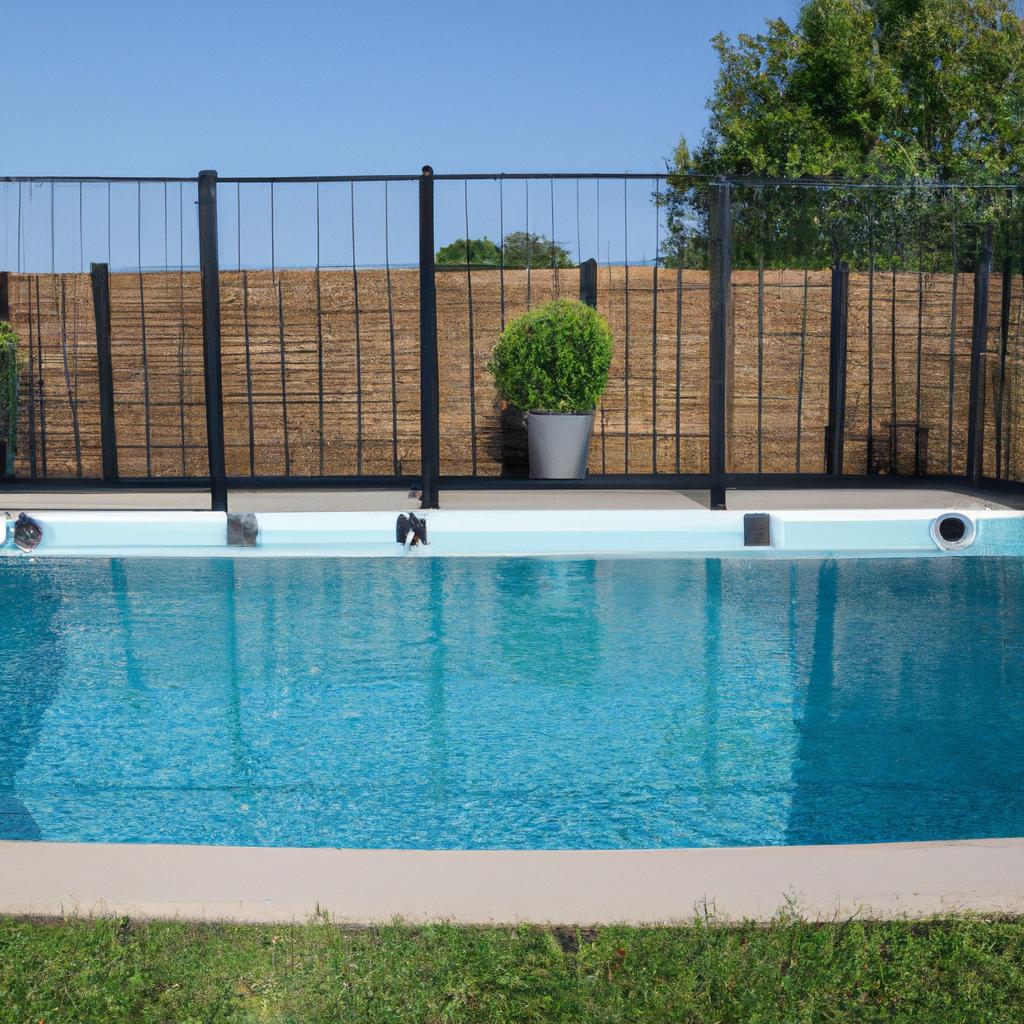As the weather gets warmer, many people look forward to spending time by the pool. However, these sunny days can quickly turn sour when bees start to swarm around the pool area. Not only can these buzzing insects be a nuisance, but they can also pose a threat to those with bee allergies. In this article, we will discuss natural ways to repel bees from the pool area, physical barriers that can be used to keep them out, and pool maintenance tips to prevent attracting bees.
Importance of Keeping Bees Away From the Pool

Bees are attracted to pools because they mistake the water for a source of nectar. Unfortunately, when they can’t find any nectar, they will often become agitated and aggressive. This can lead to painful stings and even anaphylactic shock for those with bee allergies. Furthermore, when bees are disturbed, they release pheromones that can attract more bees to the area. This can quickly turn a peaceful day by the pool into a chaotic and dangerous situation.
Common Reasons Why Bees Are Attracted to Pools

Bees are attracted to pools for several reasons. Firstly, the water may be the only source of moisture in the area, especially during hot and dry weather. Secondly, bees are attracted to the smell of chlorine, which they mistake for the smell of flowers. Finally, bees are social creatures that are always on the lookout for new sources of food and water. A pool provides both of these things in abundance, making it an attractive location for bees.
Now, write sections 3 and 4.
Physical Barriers to Keep Bees Away From the Pool
One of the most effective ways to keep bees away from the pool is to use physical barriers. These barriers can prevent bees from accessing the pool area, reducing the risk of stings and keeping the pool area bee-free. Here are some physical barriers that you can use:
Install a Pool Cover
A pool cover can prevent bees from accessing the water and reduce the amount of water that is available in the pool area. This can make the pool area less attractive to bees. A pool cover can also help to keep the pool clean and reduce the amount of debris that falls into the water.
Use Screen Enclosures
Screen enclosures can be installed around the pool area to create a physical barrier between the pool and the surrounding environment. This can help to keep bees out of the pool area and reduce the risk of stings. Screen enclosures can also provide shade and protection from the sun, making the pool area more comfortable for humans.
Erect a Bee Fence
A bee fence is a physical barrier that is designed to keep bees out of a specific area. It works by creating a visual barrier that bees find difficult to navigate. A bee fence can be made from materials like bamboo or plastic and can be installed around the pool area to keep bees away.
Bee Removal and Relocation
If you have a bee infestation in your pool area, it’s important to take action to remove the bees safely. Here are some tips for bee removal and relocation:
When to Call a Professional Beekeeper
If you’re dealing with a large bee infestation or you’re unsure how to safely remove the bees, it’s best to call a professional beekeeper. They will be able to safely remove the bees and relocate them to a safer location.
How to Safely Remove Bees From the Pool Area
If you’re confident in your ability to remove the bees safely, you can use a bee vacuum or a bee trap to capture the bees. It’s important to wear protective clothing and work slowly and calmly to avoid agitating the bees.
Relocating Bees to a Safer Location
Once you’ve captured the bees, you can relocate them to a safer location, such as a local beekeeper or a designated bee sanctuary. It’s important to never kill bees, as they play a vital role in the ecosystem. By safely removing and relocating them, you can help to protect these important pollinators.
Pool Maintenance Tips to Prevent Attracting Bees
One of the best ways to keep bees away from the pool is to prevent them from being attracted to it in the first place. Here are some pool maintenance tips to help you achieve this:
Keep the Pool Clean and Free of Debris
Bees are attracted to stagnant water, so it’s essential to keep your pool clean and free of debris. This means regularly skimming the surface of the water to remove leaves, twigs, and other debris. Additionally, you should use a pool vacuum or cleaner to remove any dirt or debris that has settled on the bottom of the pool. Finally, make sure to keep the pool’s filter and pump system in good working order to ensure the water remains clean and clear.
Remove Standing Water Around the Pool
In addition to keeping the pool clean, it’s also essential to remove any standing water around the pool area. This includes emptying any buckets, planters, or other containers that may collect water. Additionally, you should ensure that the pool cover is not holding any water as this can also attract bees.
Limit Sugary Drinks and Food Near the Pool
Bees are also attracted to sugary drinks and food. Therefore, it’s essential to limit consumption of these items near the pool. Consider using covered containers for food and drink, and encourage guests to dispose of any food waste in covered trash cans.
Conclusion
Keeping bees away from your pool area can be challenging, but it’s essential for the safety and enjoyment of everyone. By using natural repellents, physical barriers, and maintaining your pool and surrounding area, you can reduce the likelihood of bees being attracted to your pool. Remember to keep the pool clean and free of debris, remove standing water, and limit sugary drinks and food near the pool. By following these tips, you can enjoy a bee-free pool all summer long. And for more beekeeping tips and resources, be sure to visit BeeKeepinglove.com.
